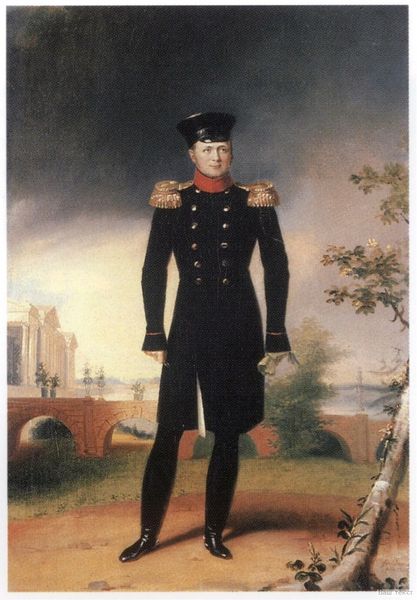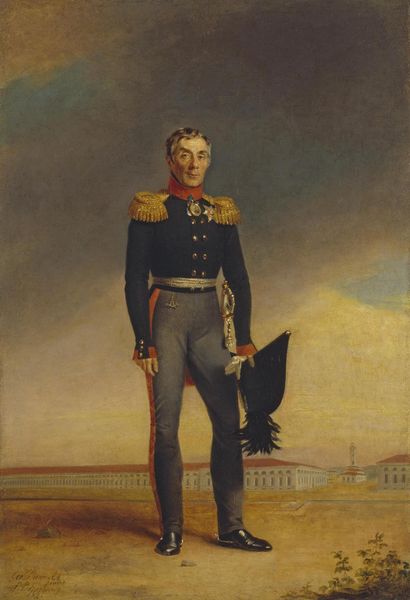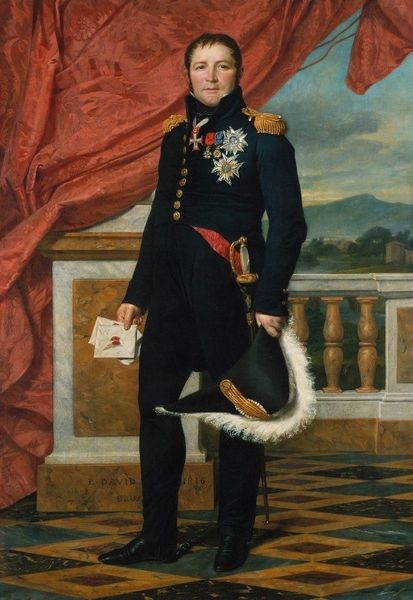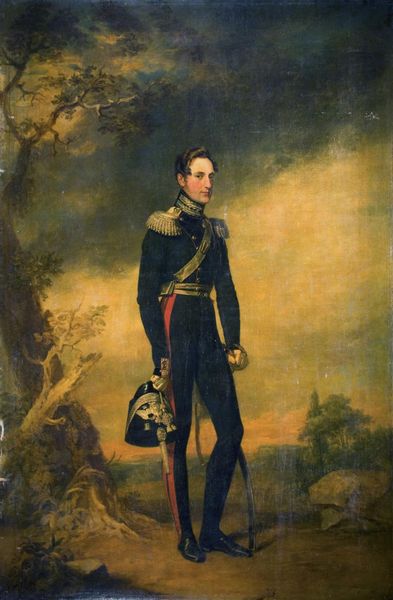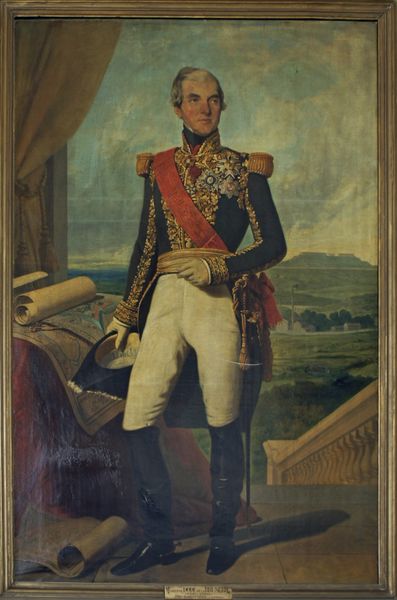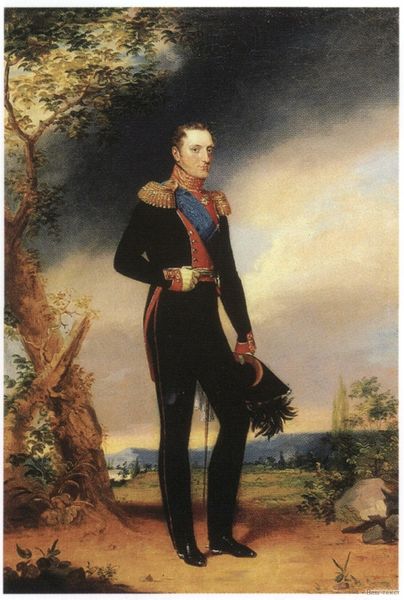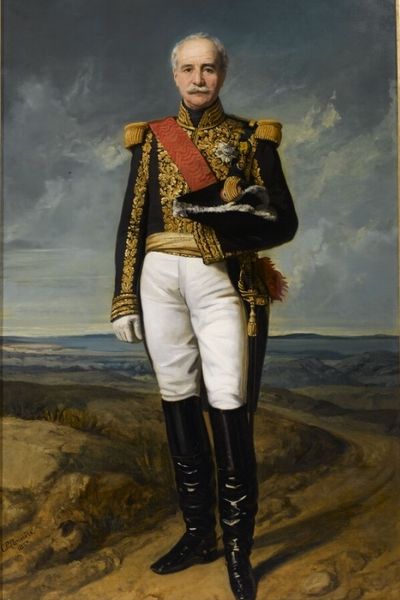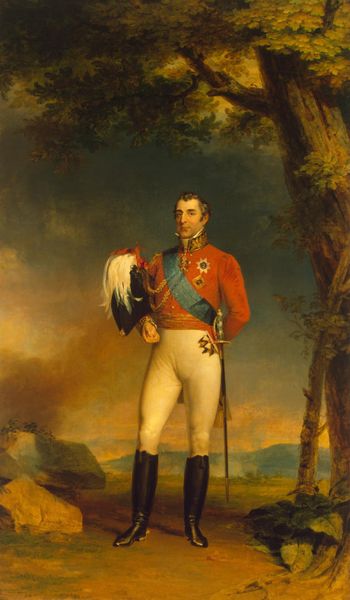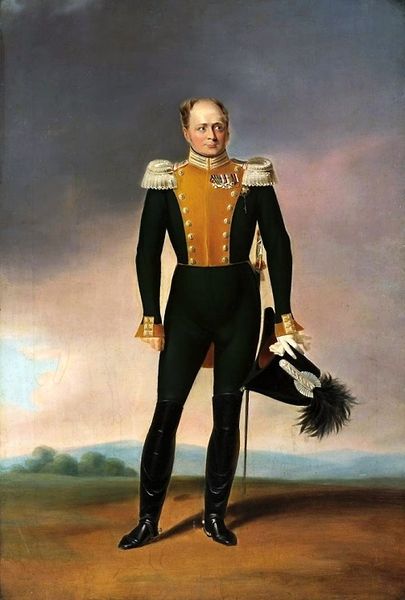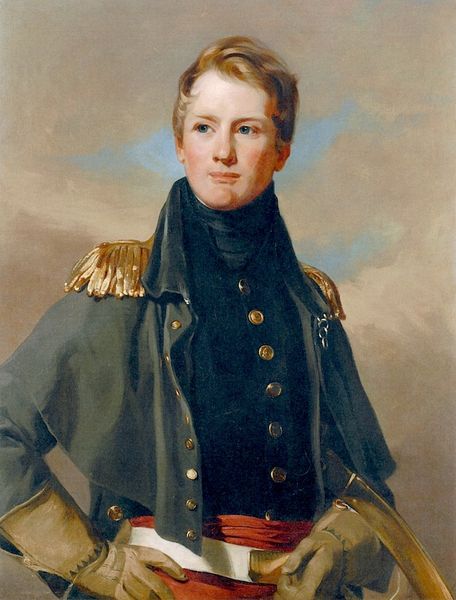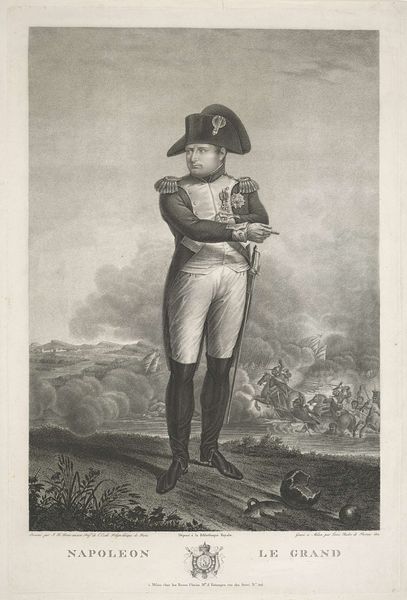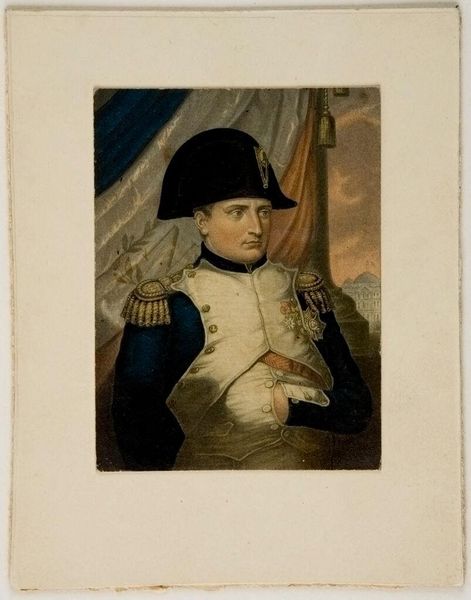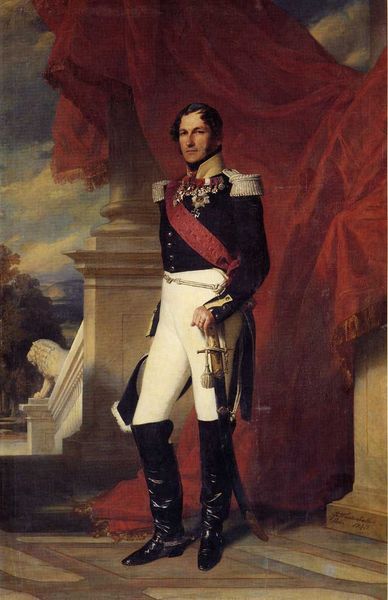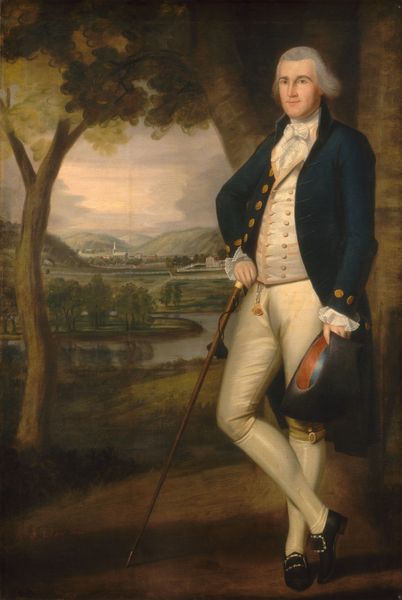
painting, oil-paint
#
portrait
#
neoclacissism
#
painting
#
oil-paint
#
landscape
#
romanticism
#
history-painting
#
academic-art
Copyright: Public domain
George Dawe painted this portrait of Alexander I of Russia against the Palace on the Water in Warsaw in the early 19th century. Dawe was an English portrait artist who gained renown for his depictions of Russian military figures after the Napoleonic Wars. In this painting, Alexander is portrayed as a strong military leader, symbolized by his erect posture, ornate military attire, and the imposing palace behind him. The backdrop is significant. Following the Napoleonic Wars, the Congress of Vienna in 1815 established a new political order in Europe, and Alexander I became the constitutional monarch of the Kingdom of Poland. The painting serves as a political statement, reinforcing Russian power and influence in the region. The portrait doesn’t critique the institutions of art, but actively contributes to the construction of a specific image of power and authority. Understanding this artwork requires an investigation into the history of 19th-century European politics. Through archival research and a deep understanding of political and institutional contexts, we can decode the messages embedded in such artworks.
Comments
No comments
Be the first to comment and join the conversation on the ultimate creative platform.
